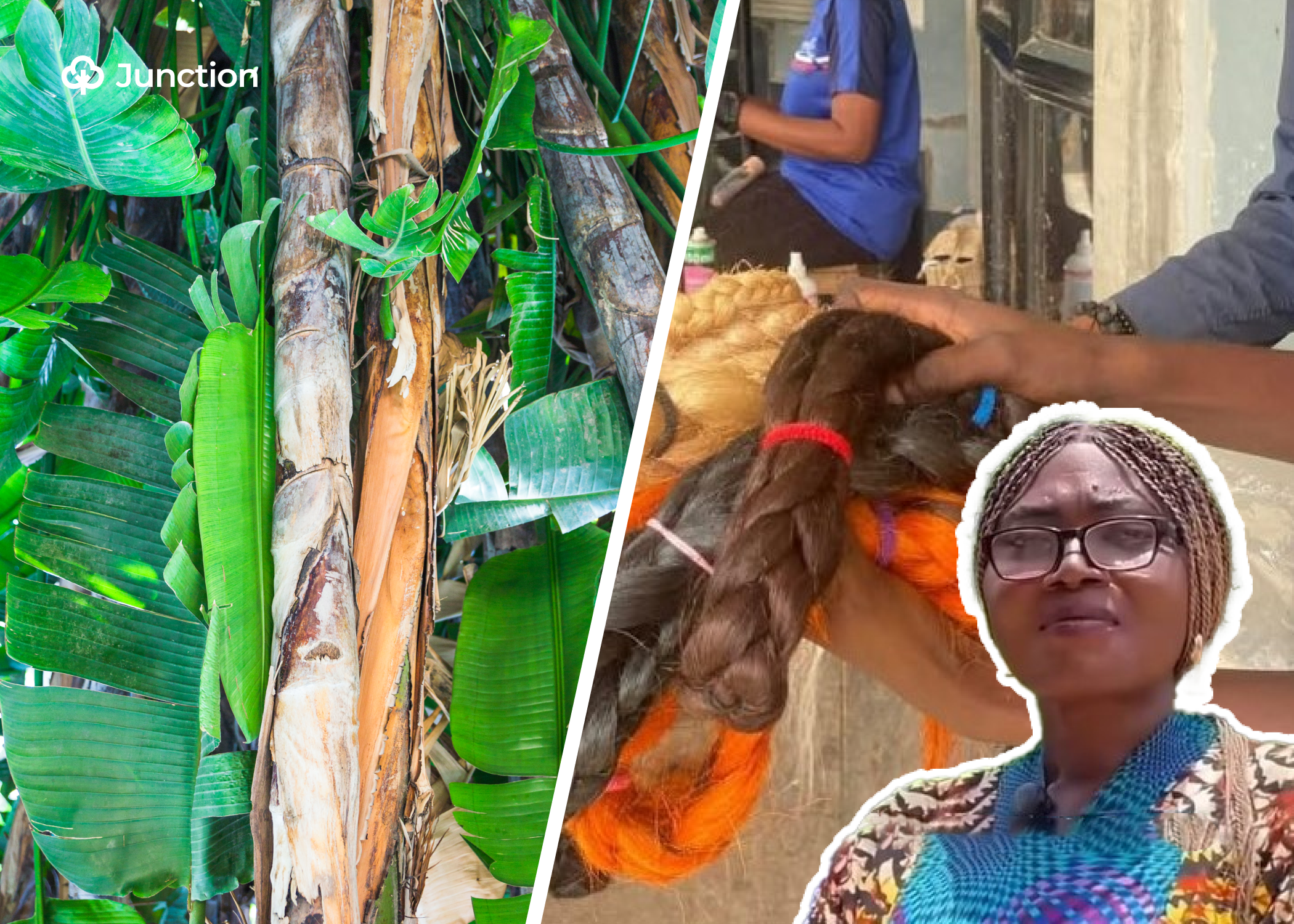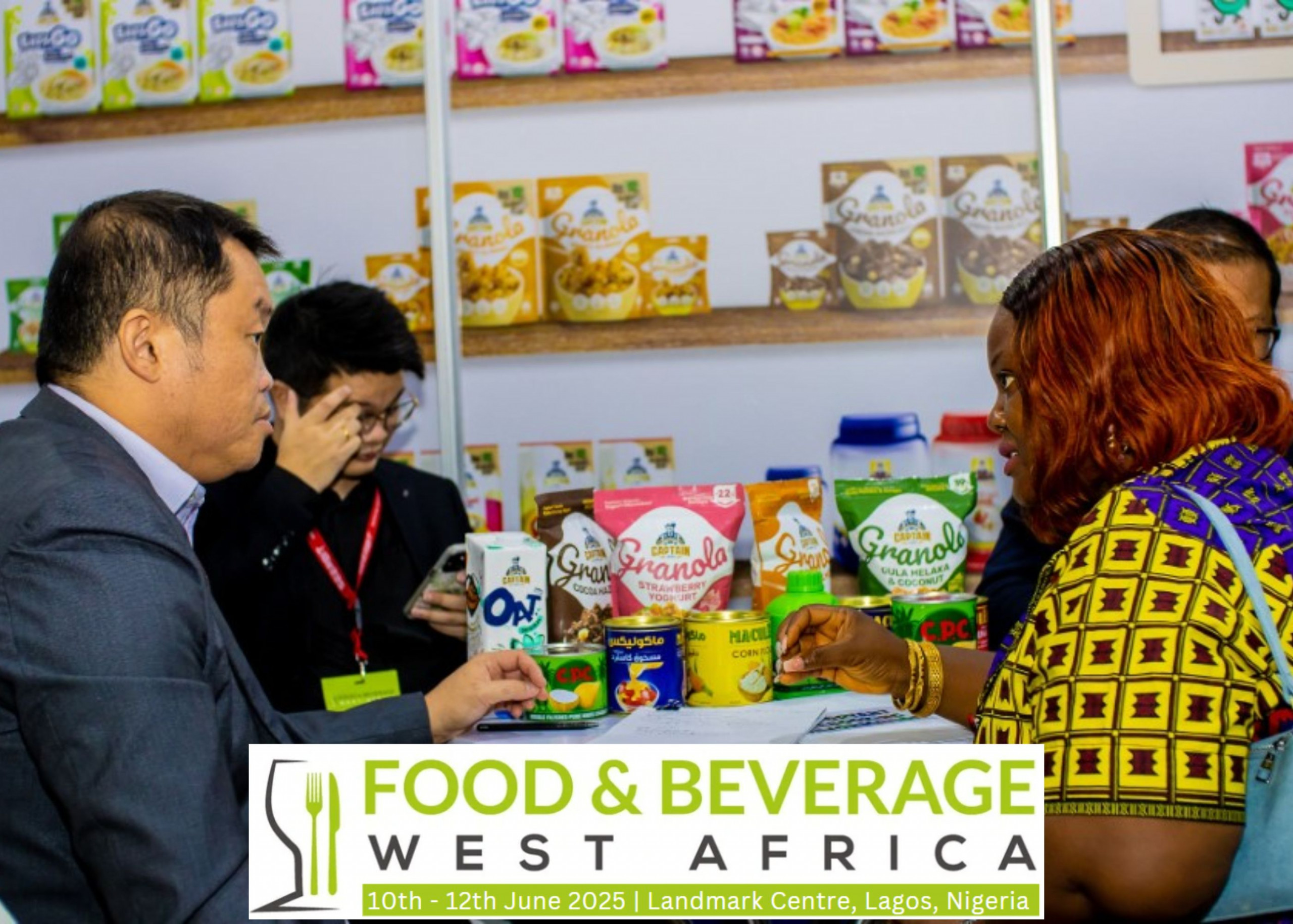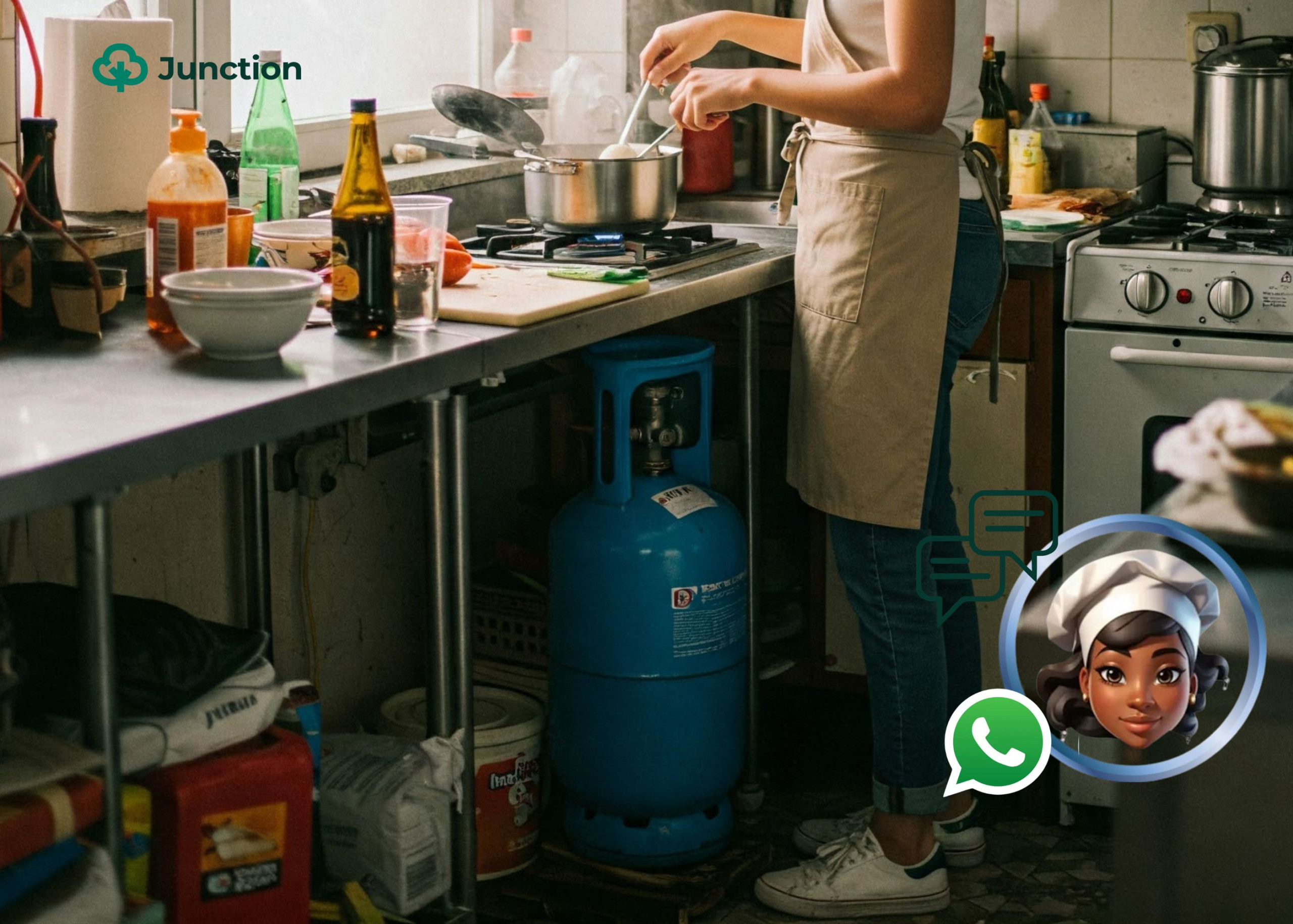What if something most people toss away could become a breakthrough product? Tare Robinson is proving that with plantain stems.
Instead of heading to the trash with the cut-down plantain trees (Pseudostem), waste from plantain harvests, these thick, fibrous trunks are being transformed into something surprisingly beautiful: Hair extensions!
The by-product of this processing is even being experimented with in the production of pillows, contributing to the reduction of solid organic waste, which makes up over half of the annual 42 million tonnes of solid waste in Nigeria.
Robinson founded Eco FIP Nigeria Limited and the hair brand Dunaly Hair. She is living proof that innovation often starts with curiosity, as her innovative use of otherwise wasted plantain trees now produces an eco-conscious fashion accessory.
“When I wear my hair and people realise it’s made from plantain stems, they’re shocked in a good way. It’s wild how something so ordinary can have such an impact,” she said while laughing in an interview with Chidera Nwafor
Childhood curiosity turns into innovation
The idea didn’t come to her from a lab or a multimillion-dollar institute; according to her, it started in her childhood. Like many kids growing up, Tare made dolls from plantain sticks. But it wasn’t until the COVID-19 lockdown hit that those memories started bubbling back, this time with a purpose.
“I was diving into plant-based materials online and stumbled on a video from Uganda about banana fibre textiles. That’s what lit the fire,” she says. Excited, she rallied a few friends and headed to local farms, collected the discarded trunks and got to work.
The first roadblock? Texture. “The fibre we pulled out was rough, too rough! People said, ‘This won’t work for hair,'” she narrated. However, she wasn’t ready to give up, and she sought a solution to the problem. A sustainable and eco-friendly solution.
Instead of using chemical softeners like some industries, Tare doubled down on developing a natural, organic process that would make the fibres smooth and wearable. The result was a scalp-friendly, lightweight hair product with an edge.
“Everything we do here is chemical-free,” she emphasises. “That’s why it doesn’t itch or feel heavy. Even people with sensitive skin love it.”
How hair extensions from plantain waste come together
It all begins at the farm. After harvesting, farmers usually throw away the pseudo-stems of banana and plantain trees, but now, Tare collects them.
Once collected, the trunks are sliced open and run through a custom-built extractor that pulls out the fibres. From there, the team hand-combs them, softens them organically, dyes them using plant-based colourants, and styles them into reusable extensions.
“At the moment, we’re only able to produce about two packs a day because combing is manual,” she explains. “But once we get a proper combing machine, we can scale faster. That’s our next big step.”
The business currently employs 22 young women, many of whom handle the detailed work by hand. “It’s a lot of effort,” Tare admits, “but it’s also empowering. We’re doing what we can, with what we have.”
Like other recycling and reuse start-ups in the circular economy sector, the processing is still manual and labour-intensive, but engages many hands, mostly women.
Zero waste, all-purpose
True to circular economy values, Dunaly Hair throws away nothing. Even the leftover fibre from combing gets used.
“We’re stuffing pillows with the fibre waste,” Tare says and shows off a soft prototype. “And believe it or not, the liquid runoff we pour into the soil? It’s started growing mushrooms.”
And that’s just the beginning. Furniture, packaging, maybe even plates, Tare sees endless potential. “We haven’t scratched the surface,” she insists. “People have no idea how much this plant can do.”
What it’s like to wear Hair extensions from plantain waste
So, what’s it like to wear? The texture falls somewhere between synthetic and human hair, creating a new category.
“It’s light, reusable, and it actually gets softer with use,” Tare explains. “You can’t compare it directly to human hair, but that’s the whole point. It’s something new.”
Interest is picking up abroad, and while local demand is growing slowly, she says that she is not in a rush. “We’re still testing, still learning. We don’t want to take orders we can’t fulfil. But we’re confident it’s ready,” the entrepreneur explained.
The road ahead
According to information on Eco FIP Nigeria Limited’s website, the services offered include the production of biodegradable utensils and food containers, and eco-friendly packaging solutions from agricultural byproducts. The startup also plans to foray into the provision of durable and stylish household essentials such as door mats, carpets, and furniture while offering training services.
Like any big thinker, Tare is planning. She wants to launch her plantation to grow plantains and bananas, securing her supply chain for the long run. “Other people will get into this space, and that’s fine. But we want to stay a step ahead by being self-sufficient,” she added.
What began as a lockdown experiment is growing into a sustainable, homegrown innovation with global potential. From discarded plantain stems to fashionable hair accessories, Tare Robinson is showing the world that African ingenuity can be stylish, sustainable, and truly transformational.




Hello, I live in Canada,
How much for 4 packs in black or dark brown including shipping.
thanks,
Janice
Hello Janice, thanks for engaging wit this article. You can get answers to your questions on the Eco FIP website https://www.eco-fip.com/shop/